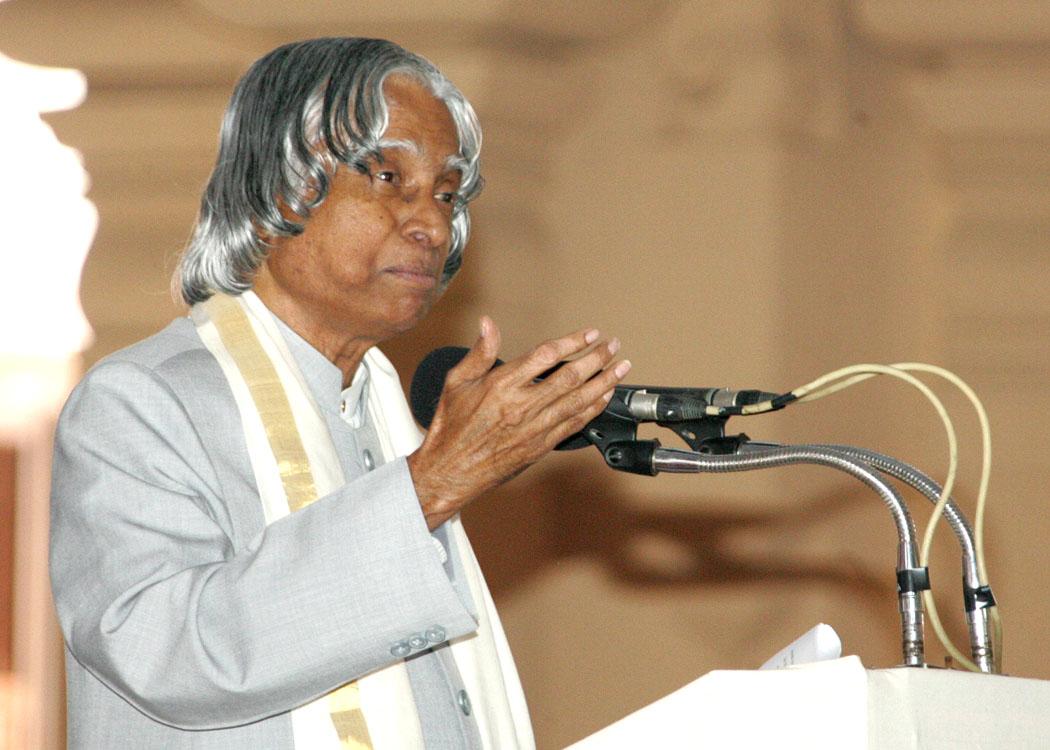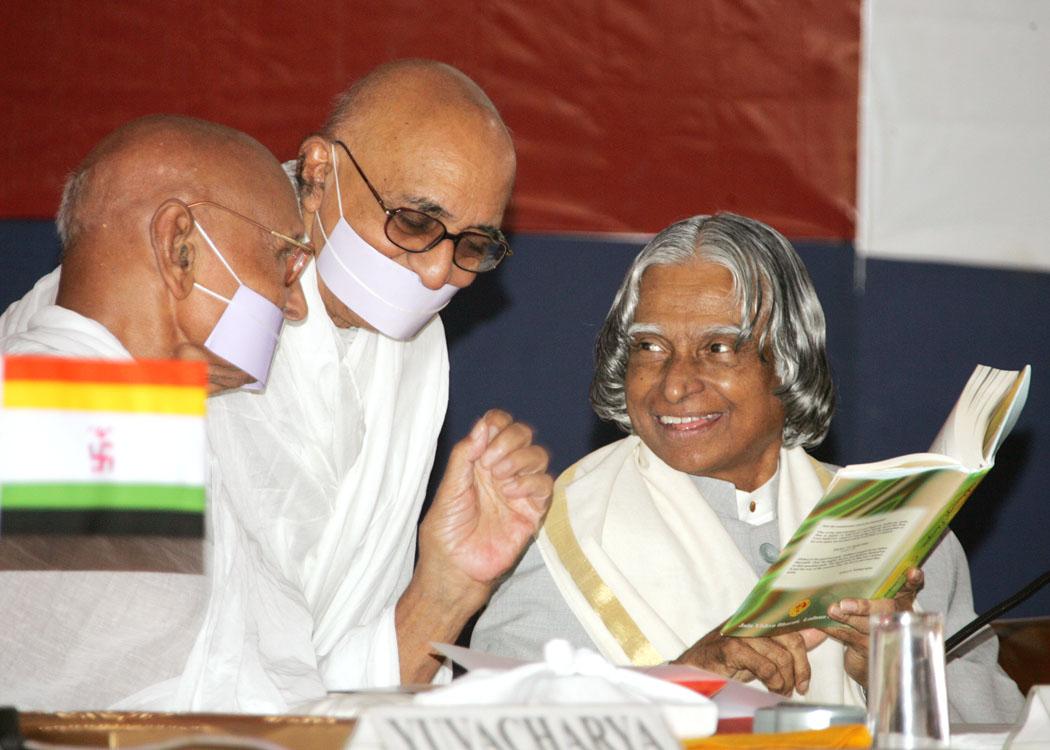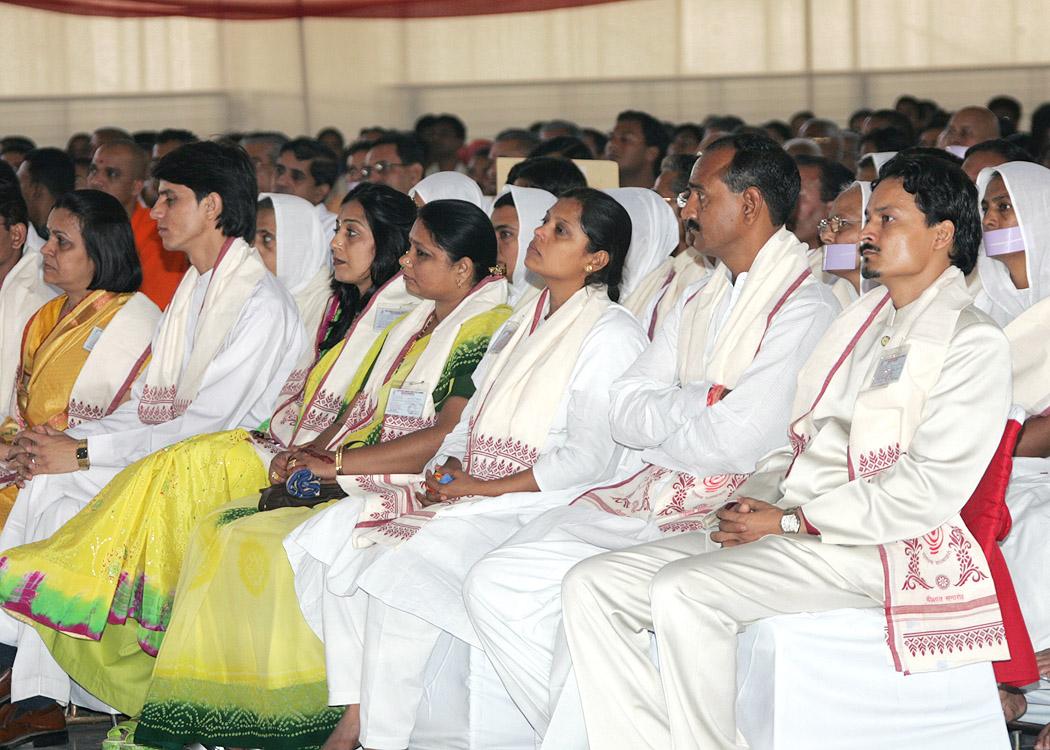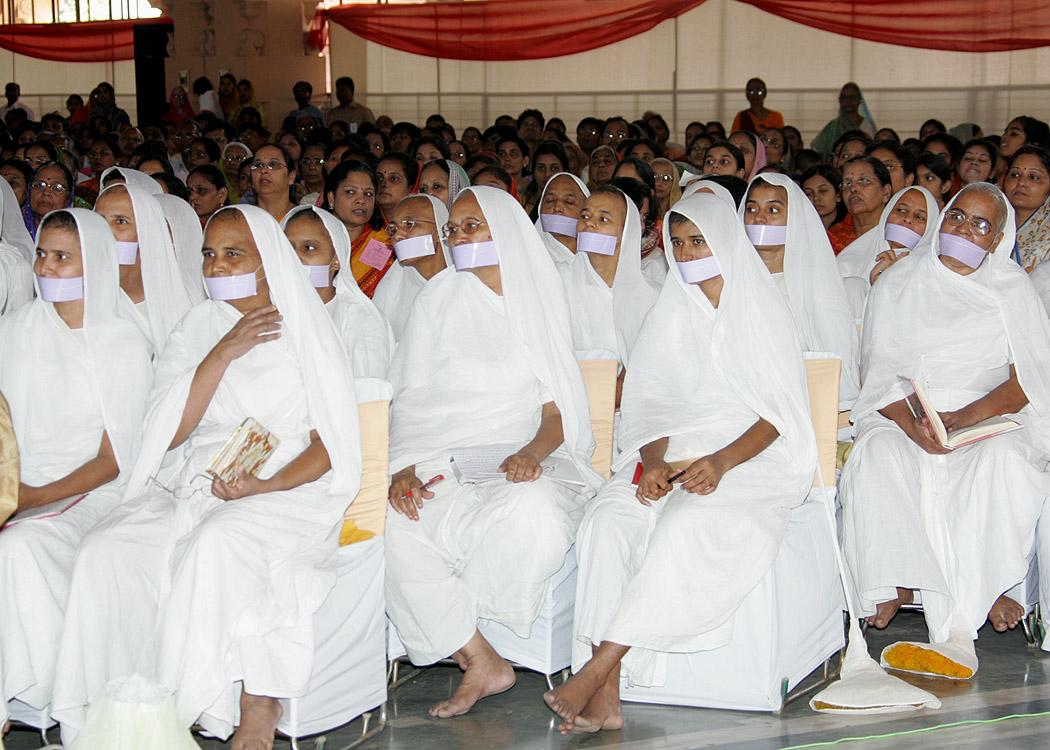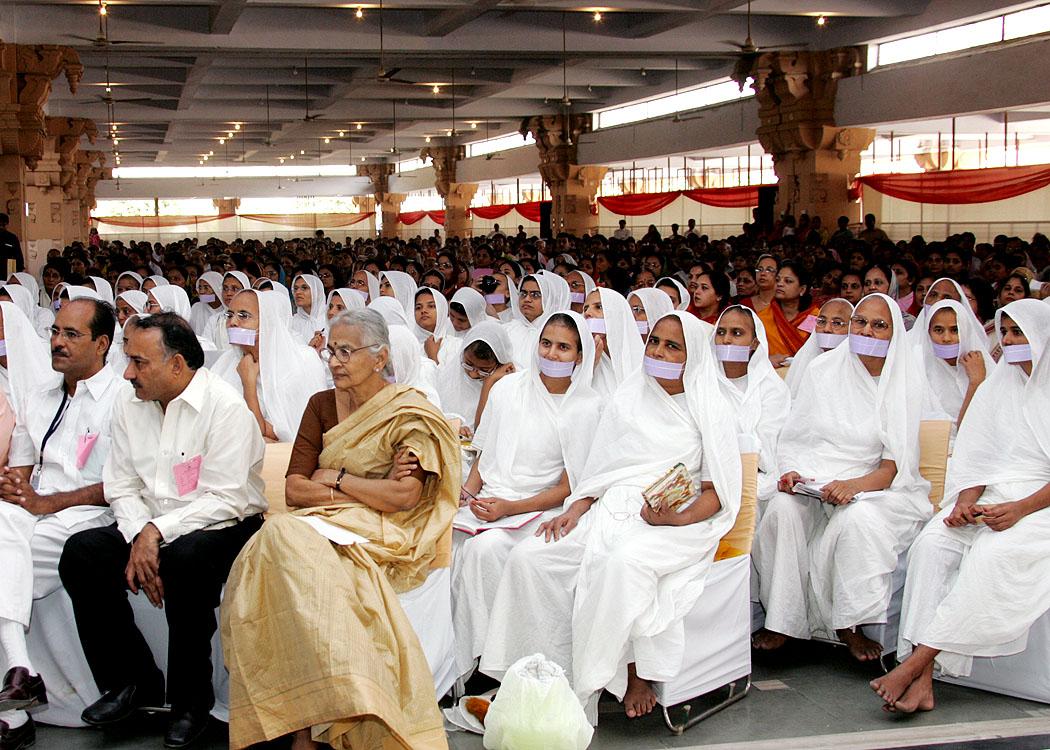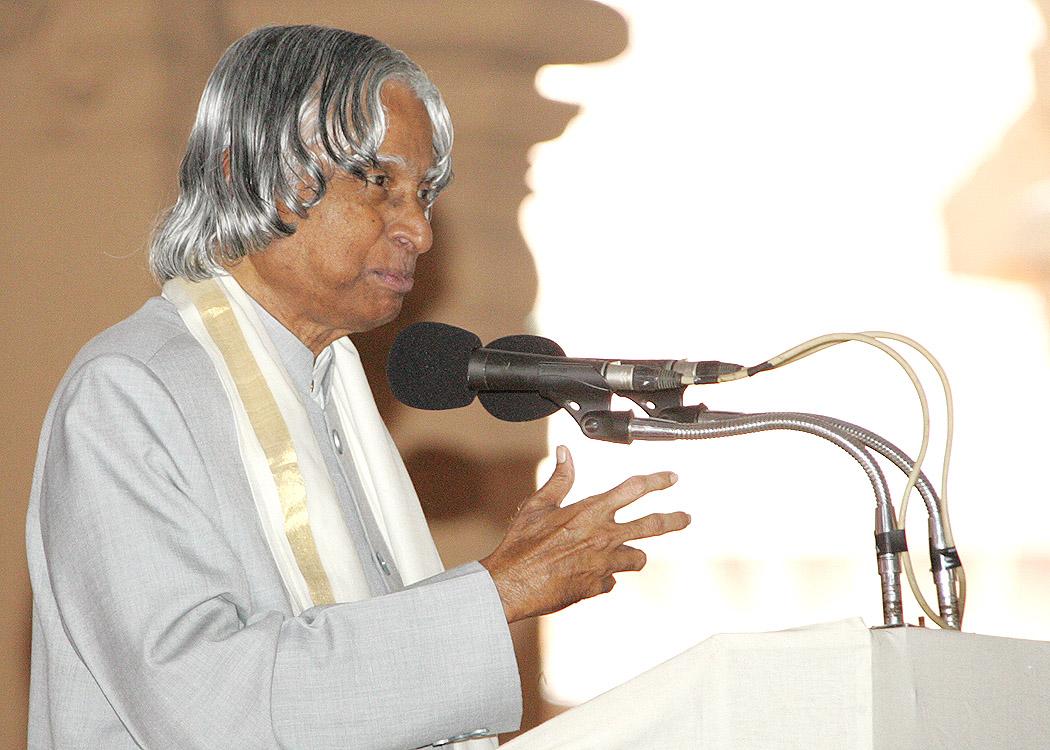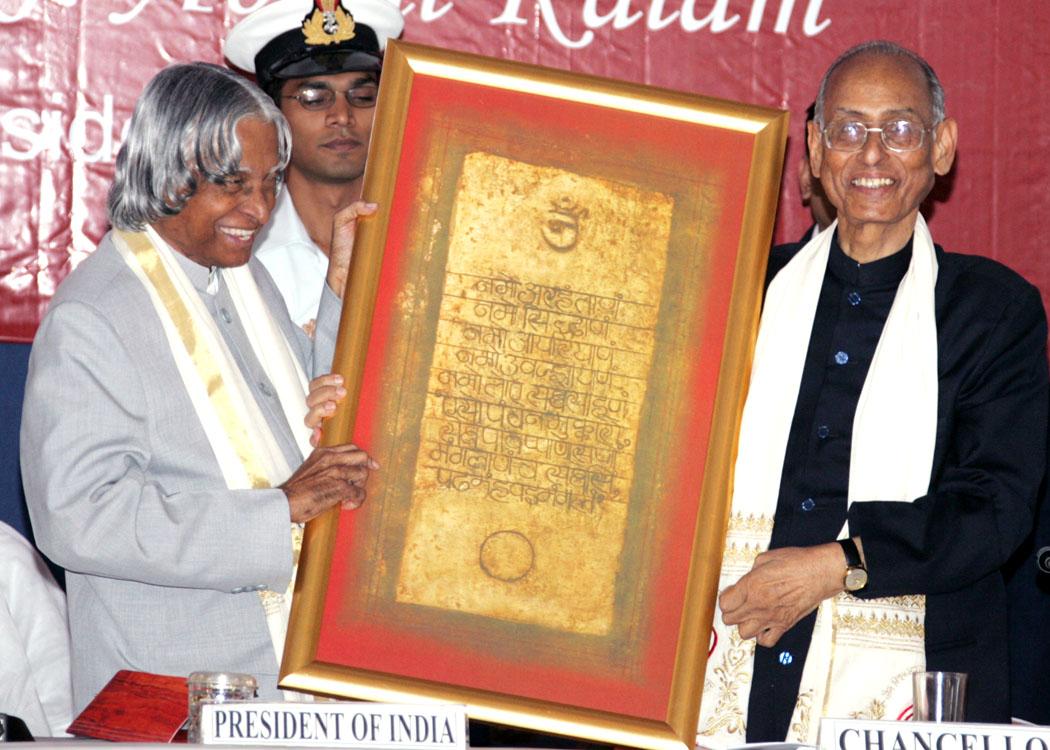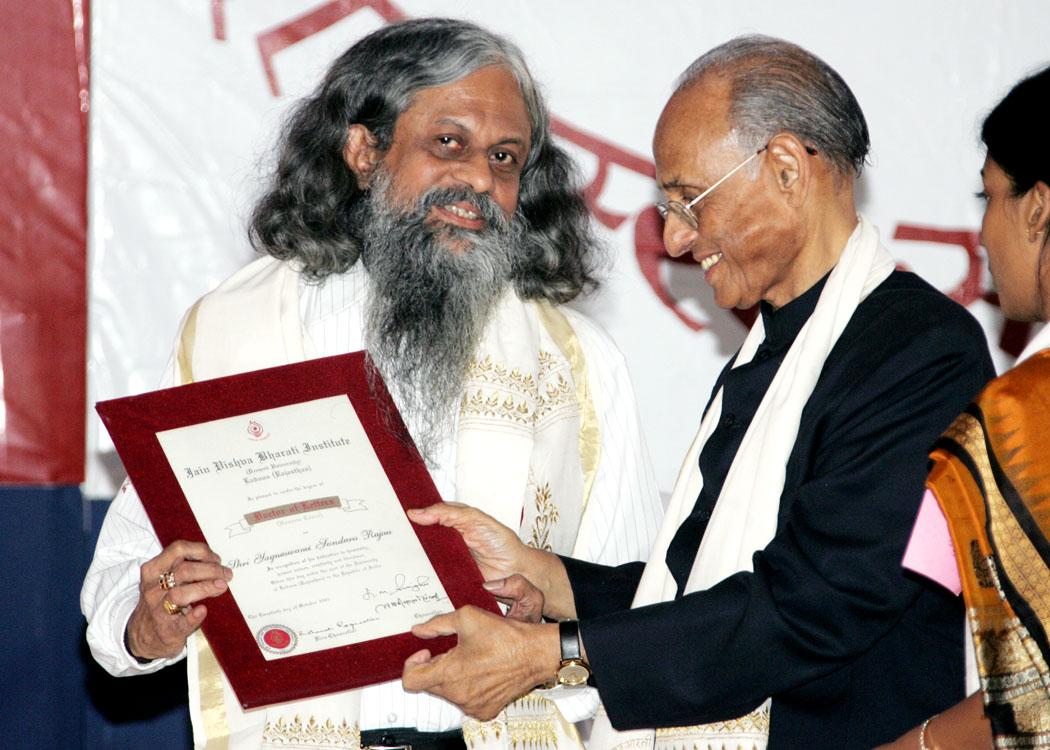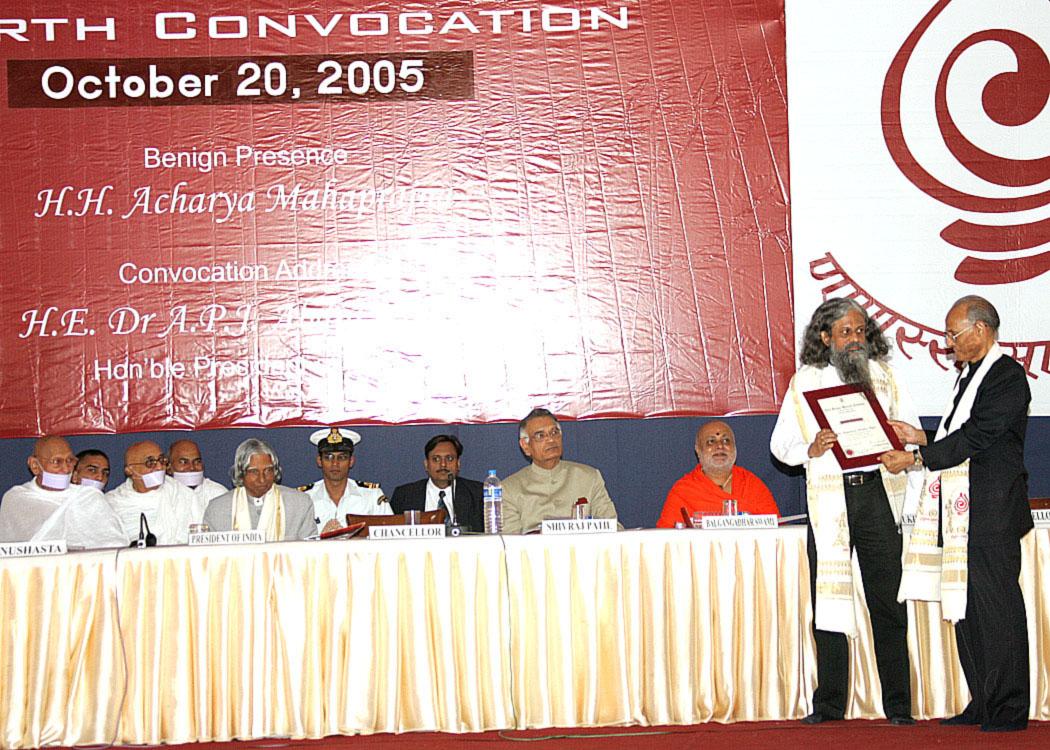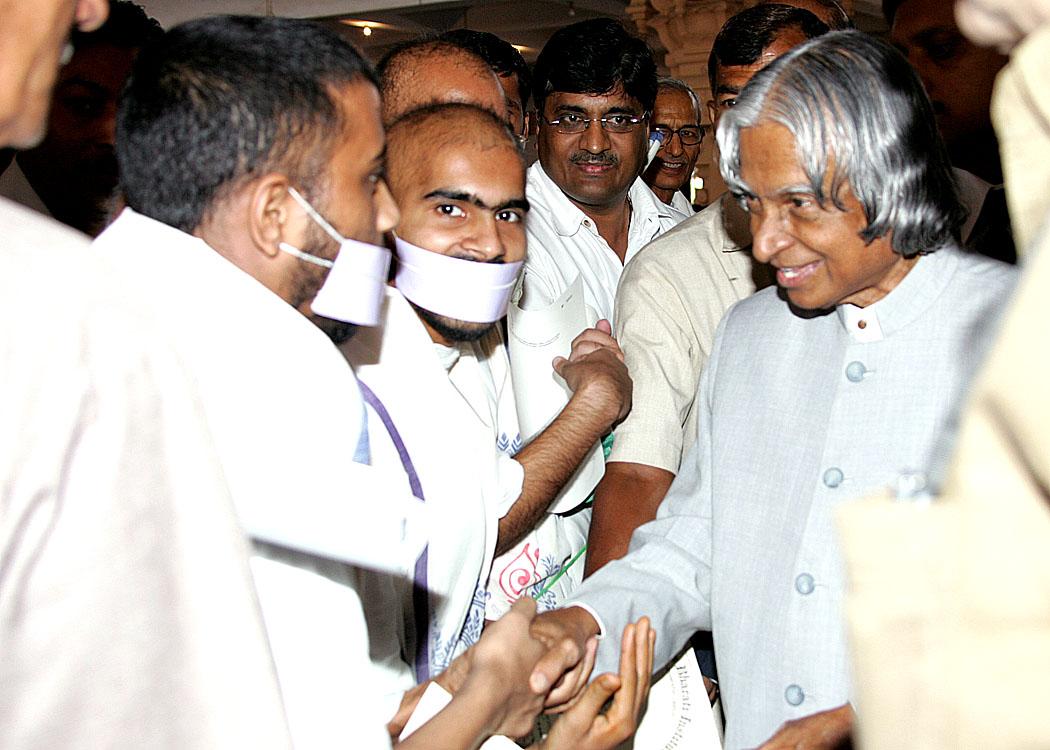Address At The Fourth Convocation Of Jain Vishva Bharati Institute
New Delhi : 20-10-2005
Can education lead to righteous citizens?
I am delighted to participate in the 4th Convocation of Jain Vishva Bharati Institute (JVBI). My respects to His Holiness Acharya Mahaprajnaji. My greetings to Dr. L.M. Singhvi, Chancellor of the University, Smt Sudhamahi Ragunathan Vice Chancellor, faculty members, students and distinguished guests. I take this opportunity to congratulate all the teachers, students and staff of this Institute and all those who have contributed in promoting excellence in educational standards of this Institute during the last decade and a half. I would like to particularly congratulate Shri. Sivaraj Patil, Honurable Home Minister and Shri YS. Rajan, for receiving the award of Honoris Causa for their singular contribution in the field of societal transformation. I am happy to know that ?Right Conduct is the Essence of Knowledge? is the motto of the Institute and every programme and every activity is direct towards the realization of this motto. JVBI is following the ancient Gurukul tradition with its green pollution free environment and promoting education among the rural masses particularly the women. Institute is also now doing a remarkable service to the nation and the world by giving the initial abode and support for Foundation for the Unity of Religions and Enlightened Citizenship (FUREC) to take up number of interfaith projects and promote national and international peace. Today, I would like to talk about "Can education lead to righteous citizens?"
God's creation
When I was thinking what thoughts that I can share with this important spiritual gathering and the graduates who have been given the integrated learning environment of Jainology and social work. Very rarely in our university system, we learn the best of the religious thoughts integrated with the conventional education. I congratulate the University for this Unique Achievement. In this connection, when I was going through various inputs through multiple literatures, I came across Rumi?s work, which aptly suits the context of the educational environment. Rumi says,
"Angel is free because of his knowledge,
The beast because of his ignorance,
Between the two remains the son of man to struggle?
It is said that, Almighty the God wanted to create a best of creation. He worked for millions of years, designed and evolved the image. He went on looking at the image, improved and improved and finally decided to give life. He looked at the galaxies, the oceans and looked at his own creation ? the man. As soon as the man got life, two things happened. First, he opened his eyes and smiled. God was happy. The second, he opened his mouth and said, ?Almighty, thank you?. The God was very happy. He was so delighted to see his creation and felt that his creation did the two right things. Suddenly, he found that something is missing in the man. He then created fire in flash of a second, out of which came the Saithan. God told the Saithan to prostrate before his best creation ? the man and give respects. Saithan said, ?Oh God, you took millions of years to create the man. But you created me out of fire in a flash of a second. So, I am the best.? The almighty who had created the universe with mighty orbiting galaxies with orbiting stars and planets, first time, bewildered with the response of Saithan. He has created the best of his creation, the man on one side, and the another side, the Saithan. He thought of it and looked at both with benevolence. The Almighty integrated the man and Saithan. God said that Oh! Humanity, I am giving you a mission? and He gave the following message:
"I have created the human being with brain and thinking faculty. I command all My creations that use your faculty with reasoning to reach My image."
This is the mission of the human life. Science is the best boon, God has bestowed upon mankind. Science with reasoning becomes the capital of the society. In whatever field we work, be it science, technology, medicine, politics, policing, theology, religion or judiciary, we have to remain in the service of the common man whose well being is central to all human knowledge and endeavour. This reminds me the saying of Swami Vivekananda, ?Religion is the manifestation of the divinity already in man.?
In this connection, I would like to recall, what Acharya Mahaprajna, has said in his book, "Why meditate?" ? "One man is wise, while the other is unwise. What is the difference between the two? If we think in accordance with philosophy, the person who has control over his thoughts and can stop the compulsive flow of thoughts - is wise, while he who clings to his thoughts and cannot stop them - is unwise.? The wisdom created by the philosophic environment created by the institute is ideally suited to build capacities among our youth by the faculty members. Now I would like to discuss the role of faculty members of this University in capacity building among the students.
Capacity Building
A good educational model is the need of the hour to ensure that the students grow to contribute towards the economic growth of a nation. Can we sow the seeds of capacity building among the students? I am happy that the JVBI is concentrating on subjects like social work, science of living, non-violence and peace, education, political science, jainology and comparative religion and computer science which are essentially required for generating enlightened knowledge worker for developing the rural India. There will be continuous innovation during the learning process. To realize this, special capacities are required to be built in education system for nurturing the students. The capacities which are required to be built are research and enquiry, creativity and innovation, use of high technology, entrepreneurial and moral leadership.
Research and enquiry: The 21st century is about the management of all the knowledge and information we have generated and the value addition we bring to it. We must give our students the skills with which they find a way through the sea of knowledge that we have created and continue with life long learning. Today, we have the ability, through technology, to really and truly teach ourselves to become the life-long learners. This is required for sustained economic development
Creativity and innovation: The management of knowledge in the 21st century is beyond the capacity of a single individual. The amount of information that we have around is overwhelming. The management of knowledge therefore must move out of the realm of the individual and shift into the realm of the networked groups. The students must learn how to manage knowledge collectively. When the information is networked the power and utility of the information grows as squared as predicted by Metcalfe's law. An information that is static does not grow. In the new digital economy information that is circulated creates innovation and contributes to national wealth.
Capacity to use high technology: Every student in our schools should learn to know how to use the latest technologies for aiding their learning process. Universities should equip themselves with adequate computing equipment, laboratory equipments, and Internet facilities and provide an environment for the students to enhance their learning ability. In the midst of all of the technological innovations and revolutions we cannot think that the role of the teachers will be diminished. In fact the teacher will become even more important and the whole world of education will become teacher assisted and would help in ?tele-porting? the best teacher to every nook and corner of the countries and propagate the knowledge.
Entrepreneurship: The aptitude for entrepreneurship should be cultivated right from the beginning and in the university environment. We must teach our students to take calculated risks for the sake of larger gain, but within the ethos of good business. They should also cultivate a disposition to do things right. This capacity will enable them to take up challenging tasks later.
Moral leadership: Moral leadership involves two aspects. First it requires the ability to have compelling and powerful dreams or visions of human betterment. Moral leadership requires a disposition to do the right thing and influence others also to do right things.
In sum, inquiry, creativity, technology, entrepreneurial and moral leadership are the five capacities required to be built through the education process. If we develop in all our students these five capacities, we will produce ?Autonomous Learner? a self-directed, self controlled, lifelong learner who will have the capacity to both, respect authority and at the same time is capable of questioning authority, in an appropriate manner. These are the leaders who would work together as a ?Self-organizing Network? and transform any nation into a prosperous nation. The most important part of the education is to imbibe the confidence among the student is the spirit of ?we can do it?. These capacities will enable the students to meet the challenges of our national mission of transforming the nation into a developed country by 2020.
Conclusion
Conscience is the light of the Soul that burns within the chambers of our psychological heart. It is as real as life is. It raises the voice in protest whenever anything is thought of or done contrary to the righteousness.
Conscience is a form of truth that has been transferred through our genetic stock in the form of the knowledge of our own acts and feelings as right or wrong.
Conscience is also a great ledger where our offences are booked and registered. It is a terrible witness. It threatens, promises, rewards and punishes, keeping all under its control. If conscience stings once, it is an admonition, if twice, it a condemnation.
A virtuous man alone can use the instrument of conscience. He alone can hear the inner voice of the soul clearly. In a wicked man this faculty is dead. The sensitive nature of his conscience has been destroyed by sin or corruption. Hence he is unable to discriminate right from wrong. Those who are leading organizations, business enterprises, institutions and governments, how can they be corrupt? Is it not wise to have a clean conscience and enjoy freedom from anxiety and all kinds of worries?
Spiritual leaders have evolved morals, codes and teachings of righteousness. Beautiful hymn, songs and prayers have been written and composed. But the annihilation of conscience by corruption appears frightening. Religion has not been effective in evoking conscience. Who then will? Can our conscience be redeemed?
I am giving this message to the graduating students of this Institute where the great Gurus like His Holiness Acharya Mahaprajnaji have created the true conscience among the students and have taught them the science of living with a definite purpose. This message, I am sure, will be carried by all the students to different parts of the country which is a vital requirement for transforming our country into a developed nation consistent with our civilizational heritage.
I congratulate all the graduating students and my best wishes to all of you in your creative mission of providing value based education and generating enlightened citizens for the nation.
May God bless you.

